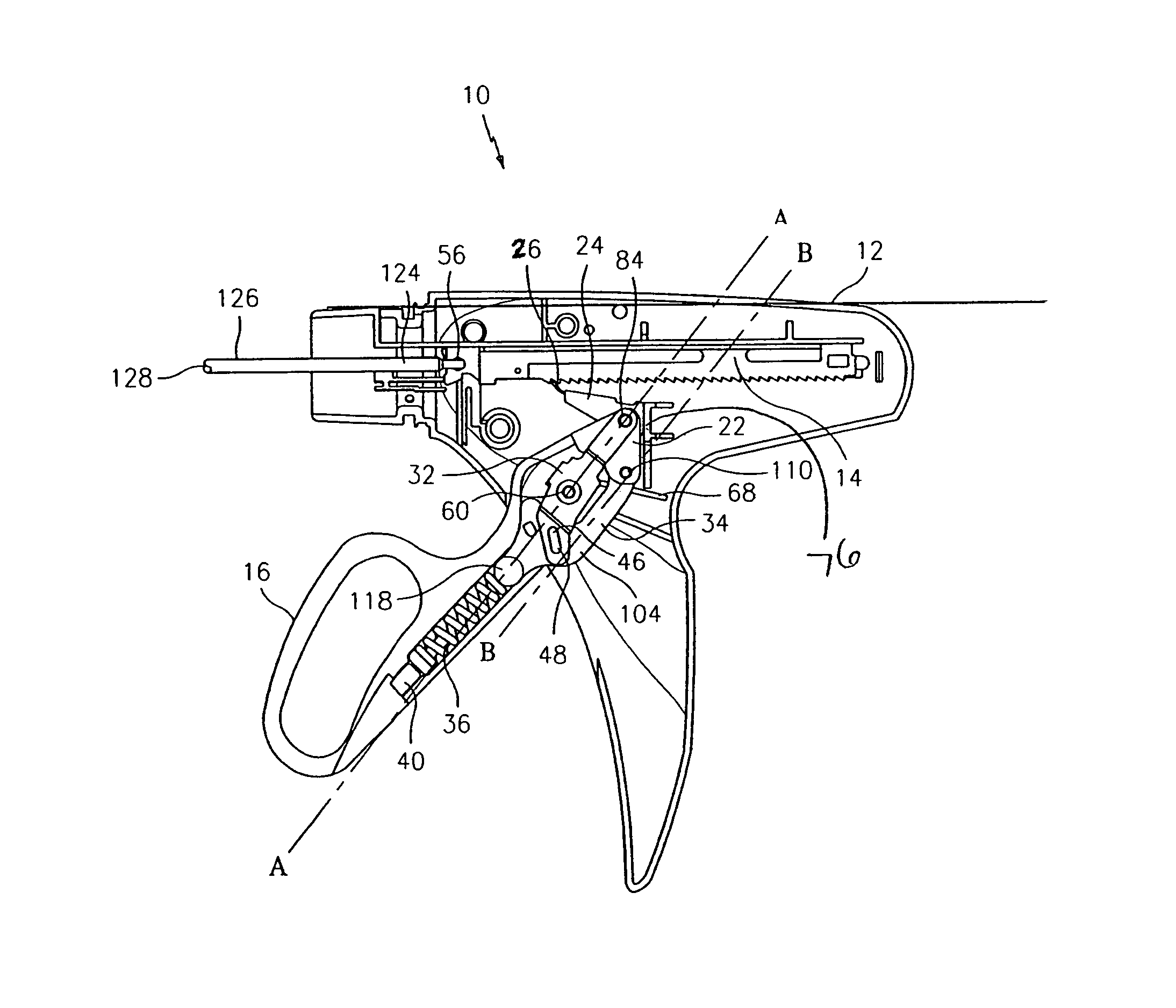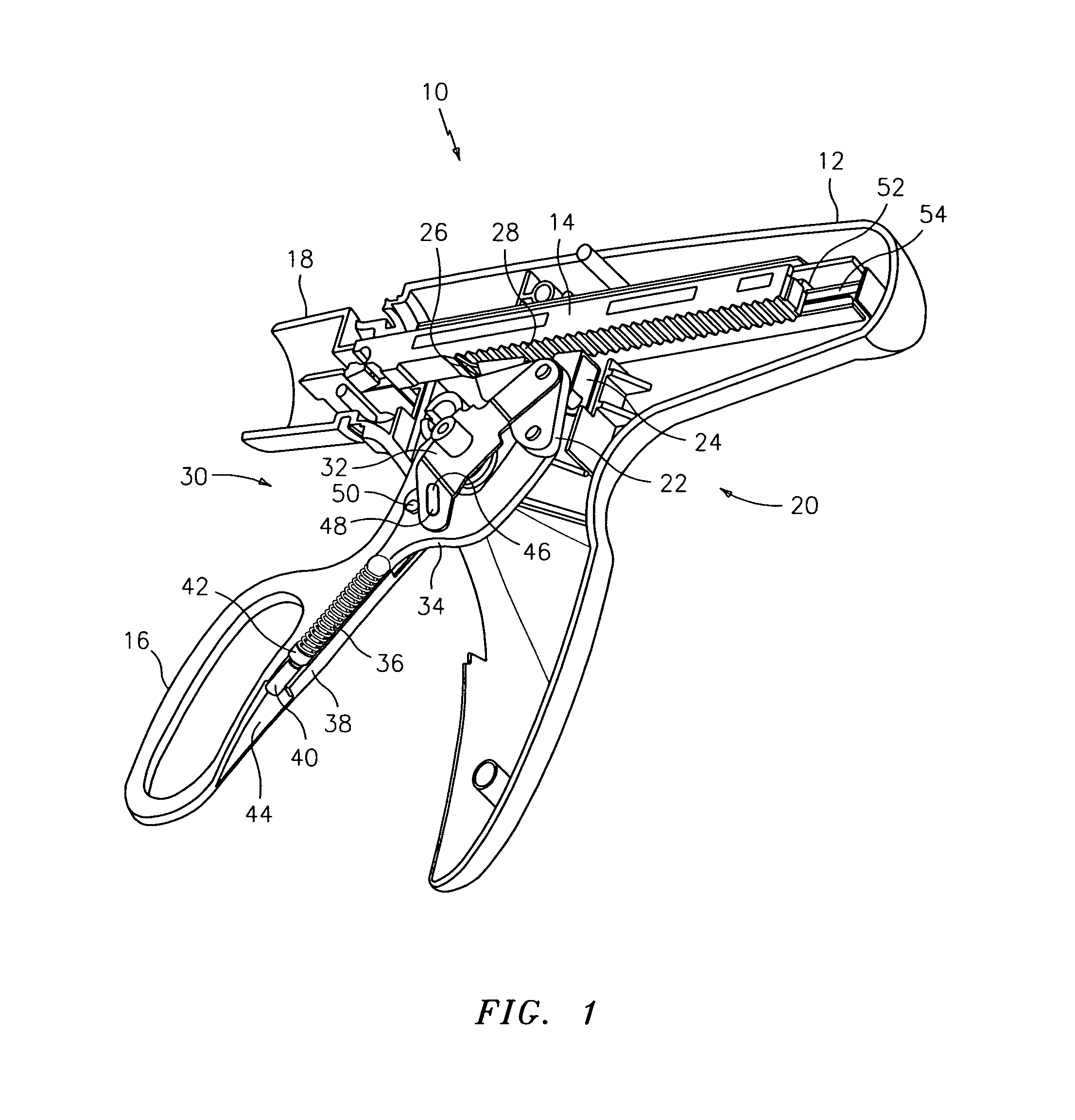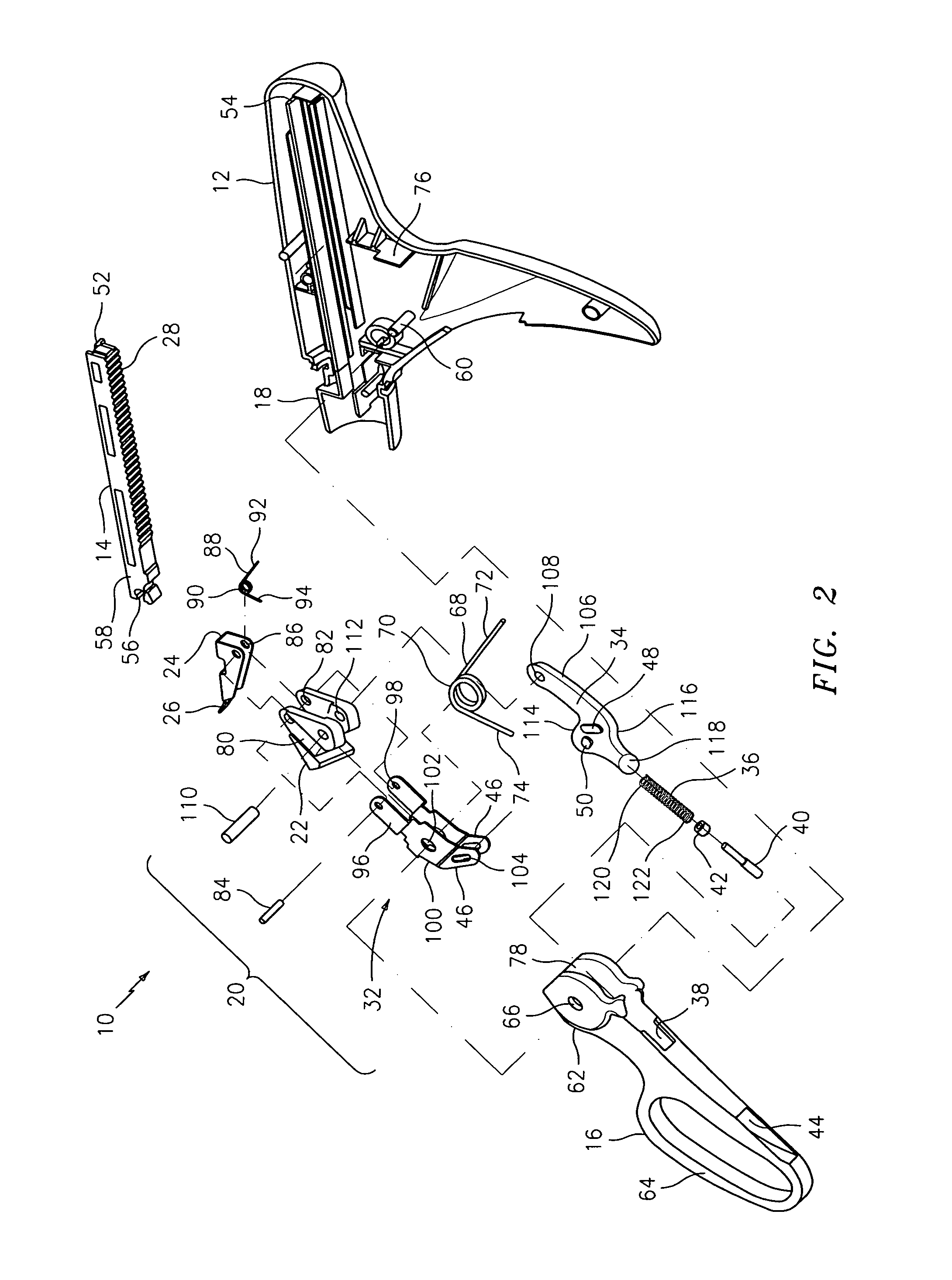Method and force-limiting handle mechanism for a surgical instrument
a technology of limiting handle and surgical instrument, which is applied in the direction of surgical forceps, surgical staples, paper/cardboard containers, etc., can solve the problems of excessive damage to the tissues being operated, damage to the tissue, and damage to the instrument itsel
- Summary
- Abstract
- Description
- Claims
- Application Information
AI Technical Summary
Benefits of technology
Problems solved by technology
Method used
Image
Examples
Embodiment Construction
[0029]An embodiment of the presently disclosed handle assembly incorporating a force-limiting handle mechanism will now be described in detail with reference to the drawings wherein like numerals designate identical or corresponding elements in each of the several views. As is common in the art, the term “proximal” refers to that part or component closer to the user or operator, e.g., surgeon or physician, while the term “distal” refers to that part or component farther away from the user.
[0030]Referring initially to FIG. 1, there is disclosed a handle assembly 10 for use with a surgical instrument. Handle assembly 10 incorporates an adjustable force-limiting mechanism 30 (e.g., clutch) to prevent excessive force applied to tissue and to prevent damage to handle assembly 10 itself in the event of an overload condition present at an associated end effector. Handle assembly 10 is particularly suitable for use in surgical instruments incorporating end effectors, such as clip or staple ...
PUM
| Property | Measurement | Unit |
|---|---|---|
| force | aaaaa | aaaaa |
| pressure | aaaaa | aaaaa |
| hard | aaaaa | aaaaa |
Abstract
Description
Claims
Application Information
 Login to View More
Login to View More - R&D
- Intellectual Property
- Life Sciences
- Materials
- Tech Scout
- Unparalleled Data Quality
- Higher Quality Content
- 60% Fewer Hallucinations
Browse by: Latest US Patents, China's latest patents, Technical Efficacy Thesaurus, Application Domain, Technology Topic, Popular Technical Reports.
© 2025 PatSnap. All rights reserved.Legal|Privacy policy|Modern Slavery Act Transparency Statement|Sitemap|About US| Contact US: help@patsnap.com



